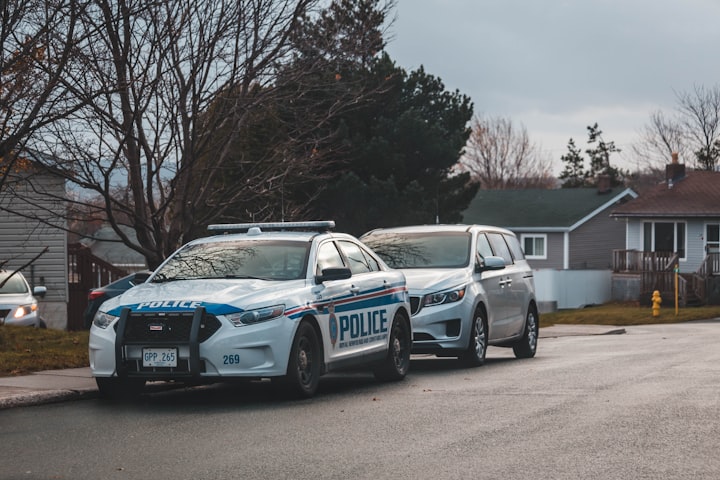Klara and the Raging Bull
Homage to a Master: Kazuo Ishiguro

Klara lived weekdays with her mother and weekends with her father. Her mother was a lawyer and she lived on 5th Avenue. Her father had been ‘let go’ and he lived in a co-op in Greenwich Village. Klara loved both people and both places. She didn’t know which one she liked best. Her mother’s apartment was clean, full of soft places to sit and fresh flowers. Light poured in through tall windows.
But her father’s co-op was lively with interesting people popping in and out of his rooms and big noisy discussions in the common rooms, and the dining room. The situation was really quite perfect, as she had lots of quiet on school days to read and do her homework, and lots of excitement on weekends where she was treated as an equal and came to enjoy having conversations. This was an artist’s co-op with paint smells always in the air, and colorful paintings propped everywhere or hung on walls. The light did not matter as much here, but if you needed some there was a studio that had all the light you could wish for from a wall of windows and ceiling skylights.
Klara’s mom Chrissie had a housekeeper who was also Klara’s nanny. The housekeeper was an artificial intelligence unit named Rosa. Since Klara was now fifteen, she didn’t need a nanny, but Rosa was also a friend and they still traveled around NYC together. Chrissie worked for an international law firm and was often away. She worked in London and Paris several times a year. Chrissie seemed to like being divorced, but Klara didn’t like it as much. Although she enjoyed two different lifestyles, she would rather be one family. She had just about given up on reuniting her parents though. It was trendy at that time to call your parents by their first names.
Since she was very young, perhaps five, she had fallen in love with the statue of the charging bull of Wall St. She dragged Rosa to see it all the time. It was polished, brown and reflective, but it was also scary. It looked alive with its head down in a charge and its flared nostrils that seemed to be breathing smoke. It looked ready to attack at any moment.
At first Klara thought that if she were to sneak up on it, peek from around a corner, it might appear gentle, and its mouth might turn up in a smile. But no matter how often she tried to catch it in another pose, it always looked angry and murderous. Rosa was petrified the first time she saw the bull. She had to box it off and take in one part at a time until she could form one coordinated image. She soon came to understand that this bull was not alive as she frequently reminded Klara. Klara, on purpose, refused to accept reality until she was ten when pretending seemed suddenly infantile. Even now Klara tried to rearrange a route she was taking in the city, now usually by herself, to include a viewing of that raging bull. She noticed other children standing in front of it as if defying it to run them down.
Many wealthy families with children had chosen to have their children genetically modified, but not Klara’s family. Her intelligence had not seemed to suffer in the least, but she would be unable to get into top tier schools. This bothered Chrissie a lot, but Klara was glad that she was real, natural, with the skills and talents she was born with. This had been one of the things that split up her parents. Her dad was against genetic modification. He won, but he lost Chrissie. When genetically modified children started to die from a mysterious disease Chrissie grudgingly agreed that Klara’s father, Paul, had been right.
Klara understood that Rosa ran on solar power and that when there was little sun for several days, she could become very weak. Artificial light did not work to recharge her. New York City was a difficult city for Rosa to live in and if her mother and father’s living spaces did not have access to so much light Rosa might have been useless too often to do her duties as a housekeeper. Sometimes Chrissie threatened to trade Rosa in on a new model that stored the sun’s energy in a battery and that could also be recharged using regular electricity, but Klara would not hear of it. Soon, though, Klara would finish high school and go off to college, a second-tier college, but still, she would live away from home for most of the year.
Long ago Klara had learned that her raging bull sat at the entrance to the financial district. She had often confided her dilemma about Rosa to the unmoving bull. The bull represented money, investments, and good times for the economy. The bull told Klara (not really of course, but in her mind) to not rage at fate but to turn that rage into profit by investing her allowance and stockpiling money in a bank account. Klara was never a very acquisitive child, so she did that. By the time she was ready to leave for college she had amassed quite a tidy sum.
Klara spoke to her father about Rosa and wondered if she could go to college with her. She worried that her mother would trade her in while Klara was away. It turned out that Rosa was a gift from her father to her mother, so Chrissie did not actually own Rosa’s papers. Paul still held them. This presented a new dilemma. Klara wanted to save Rosa, but she also did not want her parents to be any more alienated than they already were. Klara decided that she would have to deal directly with her mother. She did not hold out much hope. Her mother could be pretty stubborn.
When she spoke to Chrissie about it, things did go as she had thought they would. Well, almost. She did not anticipate that her mother would focus in on the bank account and the stock trades. She started to look a bit like that raging bull, but not in a good way. “Who opened that account for you,” she asked, although she knew that there was only one person who could have done that. “Who helped you buy stocks, which is just like gambling, she yelled. Chrissie, of course, owned stocks of her own. She didn’t really scare Klara anymore, either. Her mom might yell but she truly loved Klara. Chrissie would go away and sulk and think about it.
Paul and Chrissie met for lunch, although they had not seen each other in years. They agreed that their lives were too different to ever be constantly in each other’s orbits, but there was still a fondness there. Perhaps they could at least enjoy each other physically in a sort of secret affair. Chrissie would give Rosa to Klara as a graduation gift and Paul would give Klara the papers.
Rosa was hopelessly out of date and soon Klara would not be able to digitally update her any further, but Klara didn’t mind. She would go to college in a sunny place where Rosa would function like new. She used most of her investment to buy a snug little beach house in San Diego and assured her parents that she would return to NYC often. Klara got a degree in environmental science and became a climate warrior. She often returned to New York, and since the charging bull had become her touchstone she visited him every time.
Klara found out about the secret affair her parents were enjoying when she married her childhood sweetheart, Rick, who showed up in San Diego one day looking for her. She was happy that her parents had found a way to deal with each other and that the love was still there. What if she had never run into that bull, Klara often thought.






Comments
There are no comments for this story
Be the first to respond and start the conversation.